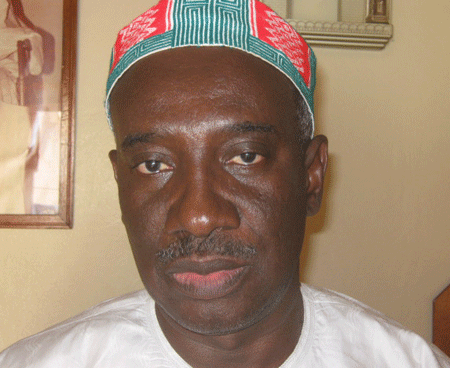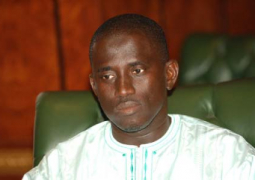
"The combating of impunity by bringing people to account and ensuring legal accountability for perpetrators of crimes against humanity is a task which has to be done, and it can be undertaken successfully," Hassan Babucarr Jallow, the Chief Prosecutor at the Arusha-based United Nations International Criminal Tribunal (ICT) for Rwanda said.
He told our reporter in an exclusive interview in Banjul yesterday that the work of the ICT, ICTY (Yugoslavia Tribunal), the Special Court for Sierra Leone, and that of the Cambodia Tribunal, all combined together, have demonstrated to the world that this can be done successfully.
"The tribunals have set down that principle, and it is because of the work that they have undertaken quite effectively that has led the international community to have confidence to move forward, away from ad-hoc tribunals to creating a permanent structure in the form of the ICT to deal with impunity to ensure the prosecution of perpetrators of such kinds of offences," Mr. Jallow stated.
Mr. Jallow served as The Gambia's Attorney-General and Minister of Justice in the First Republic from 1984 to 1994.
Having been elected to the post by the United Nations Security Council in 2003, which was later renewed for another four years, Mr. Jallow is charged with the responsibility of investigating and prosecuting those persons who committed serious violations of international humanitarian law in the Rwandan genocide in 1994.
According to the ICT chief prosecutor, such crimes are being committed now in various parts of the world, including in Africa.
However, he pointed out that the fact of the matter is that even though these crimes are being committed, there is now a mechanism to hold to account those responsible, unlike in the past when such people will get away scot-free.
"Now, people cannot get away scot-free when they commit such offences, because the law will catch up with them. The law is there, the institutions are there, and the frameworks for establishing the international humanitarian laws are clear," he added.
Commenting on the tribunal's stance on the Rwandan genocide, Mr. Jallow said the responsibility of the ICT has been to focus on those who played a leading role; those who were in leadership positions and whose participation was notorious in the genocide, orchestrated by the extremist government at the time.
"As a result, we indicted 93 people ranging from members of the then government, heads of the military and security services to cabinet ministers, public officials, administrators, media people, community leaders who had all been involved in these tragedy," he noted.
Mr. Jallow stated that, as at present, the tribunal has finished the trial of 50 people and 20 others had their cases adjourned for judgment, which is expected during the course of this year. He added that they have 11 fugitives on the run who are suspected to be in eastern and southern Africa.
"The information we have points to them being in eastern and southern Africa. Some of them are within the DRC, which is a vast territory, inaccessible and uncontrollable by the current government. It provides a safe haven for these people and many of them are suspected to be there," Mr. Jallow said.
He added that the trial of the remaining accused persons is expected to end at least by the end of 2010.
The ICT chief prosecutor highlighted some of the major challenges facing the tribunal, which is the arrest of the 11 fugitives.
"We do face some challenges. Our main concern at the moment is the arrest of these 11 fugitives. We would not like to close the tribunal without the fugitives being tried. That's our principal challenge at the moment," he concluded.



